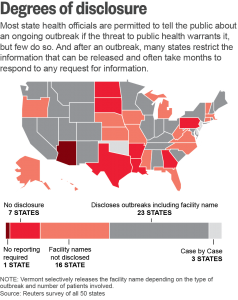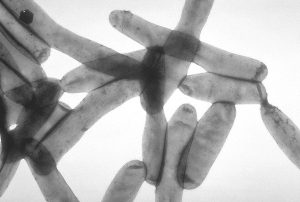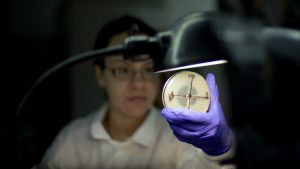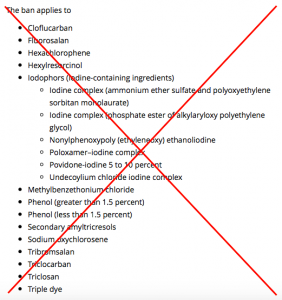Quick post. This is a very important read by Helen Branswell in STAT for those interested in antibiotic resistance. Patients are told to finish their antibiotics, even if they feel better, but that guidance may be exacerbating antibiotic resistance, some experts say. Source: Why the advice to take all your antibiotics may be wrong
There is an increasing number of studies with a large number genomes recovered from isolate, metagenome, or single cell sequencing. To bridge the gap between the available genome sequences and available phenotype information, we have developed Traitar, a bioinformatics software to phenotype bacteria based on their genome sequence (see workflow below) . Traitar includes phenotype models for …
Vague rules give healthcare providers leeway in deciding when, or even whether, to report clusters of infections. And when they do, the public rarely knows. This is a really really big deal. We desperately need to be more open about antibiotic resistant bugs and any outbreaks of them. Kudos to Reuters and Deborah J. Nelson, David Rohde, …
Quick post here (h/t to Paula Olsiewski for the link) about a cool-sounding new device for the rapid detection of Legionella. I can’t say that I’m on board with the fanciful claims made in the press release (e.g. “The risk of catching fatal Legionnaires’ disease from air conditioning units has been dramatically reduced“) but the …
Waste released from pharmaceutical plants in India and China is contributing to the spread of antibiotic-resistant superbugs. So this is certainly interesting. There is an opinion piece in STAT by Henry Waxman and Bill Corr from Waxman Strategies: Waste from pharmaceutical plants promotes antibiotic-resistant superbugs. It is of interest both because we are almost certainly in …
Jumping on the blame train, my colleagues and I have found yet another reason to avoid antibacterial products. Our study, which identified a correlation between certain antibiotic resistance genes and the much maligned triclosan in indoor dust, was published in Environmental Science & Technology last week. As of today, the full text version is freely …
Studying the 5 second rule, antibiotic resistance genes in indoor dust and sewers, Legionella in the air, and water treatment. Microbes on the floor Longer Contact Times Increase Cross-Contamination of Enterobacter aerogenes from Surfaces to Food — Robyn C. Miranda — Applied and Environmental Microbiology ($25 for 1 day) Bacterial cross-contamination from surfaces to food can …
There is a review out in Water Environment Research that may be of interested. Title: Antimicrobial Resistance in the Environment Water Environment Research, 2016 Literature Review, pp. 1951-1967(17) Authors: Williams, Maggie R.; Stedtfeld, Robert D.; Guo, Xueping; Hashsham, Syed A. Abstract. This review summarizes important publications from 2015 pertaining to the occurrence of antimicrobial resistance (AMR) in the …
Well, this is enormously big news: The FDA today banned the use of triclosan as an ingredient in antibacterial soaps, saying that such cleaners were no better than regular soap. Source: FDA bans antibacterial soaps containing triclosan Lots and lots and lots of other stories about this. See for example FDA announcement Washington Post NPR …
Well, I am truly speechless about this. Katie Dahlhausen, a graduate student in my lab, pointed me to this last week SQUIX | Innovative Germ Fighting Products and I have been wondering what I could possibly say about it. So I think I am just going to not write anything else but I will post …









